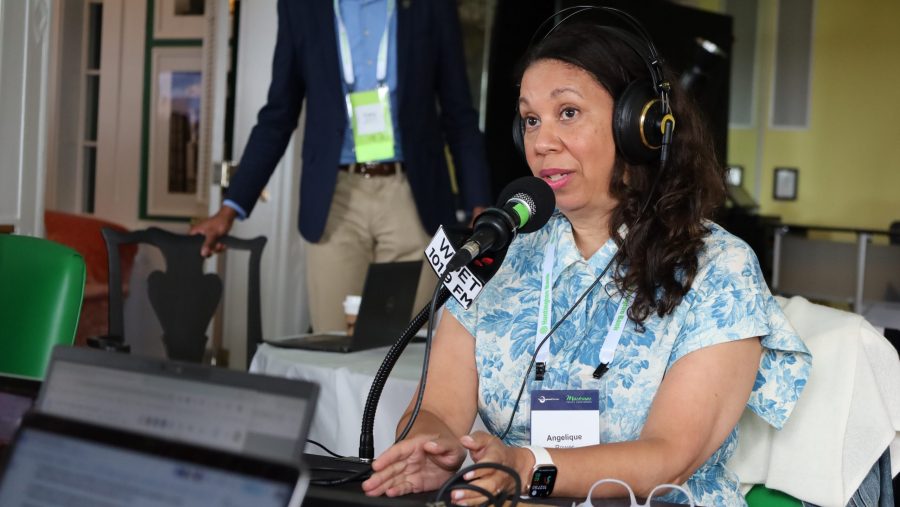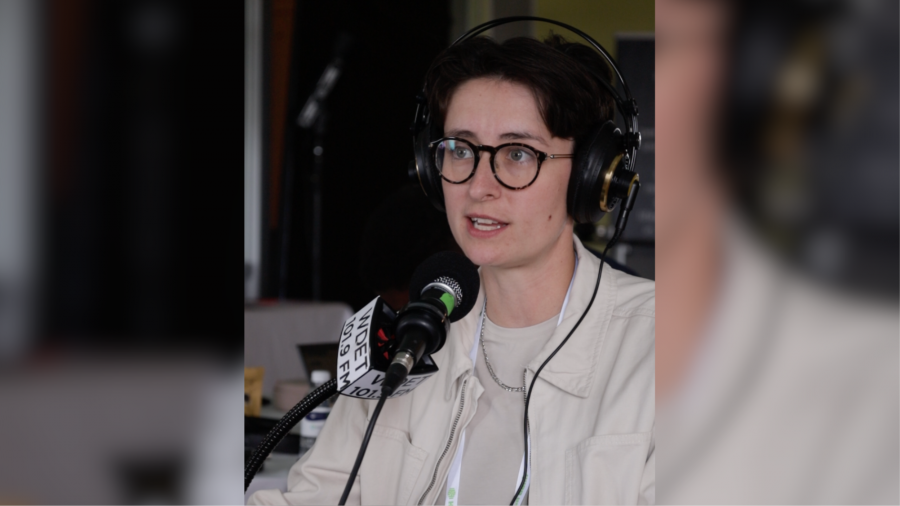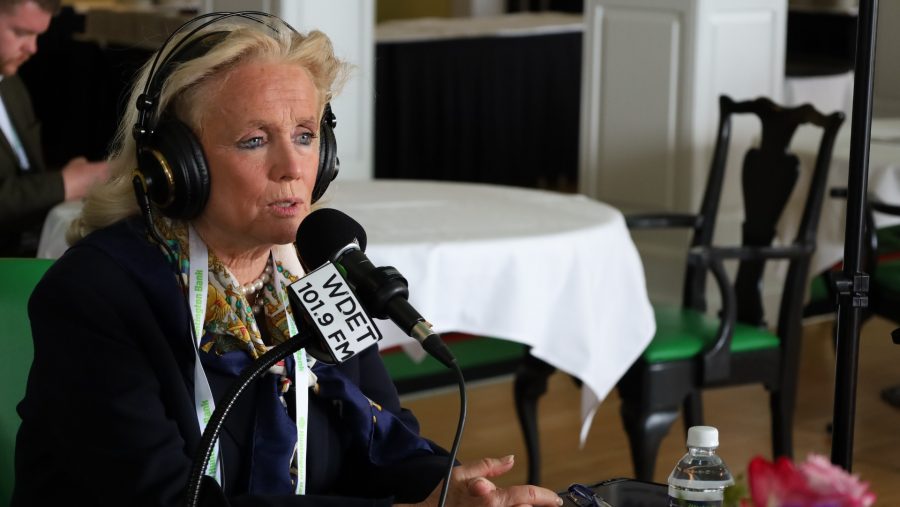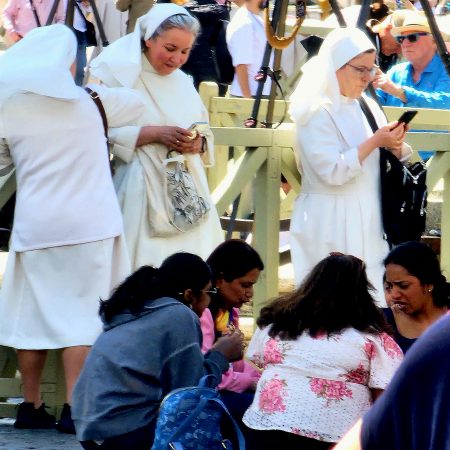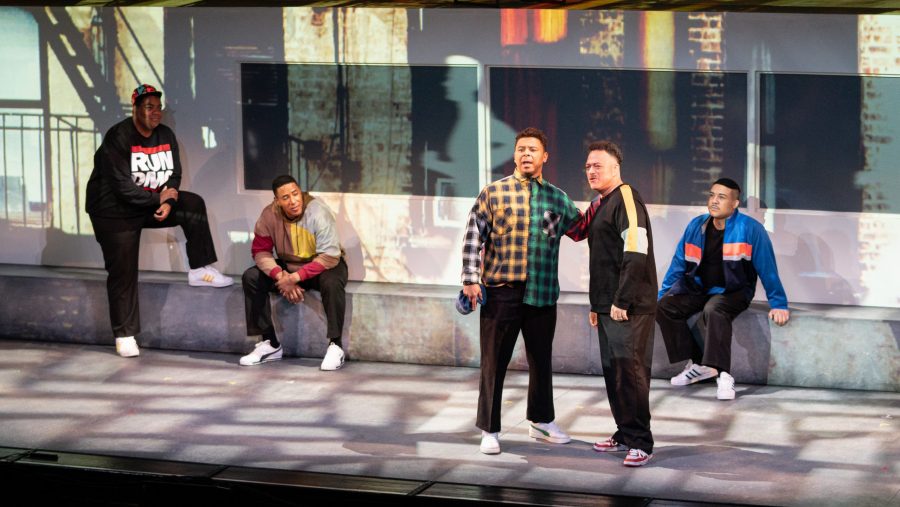Penske praises Detroit as team moves on from Indy 500 controversy
The checkered flag has flown over this year’s Detroit Grand Prix.
IndyCar driver Kyle Kirkwood took the win in the final race of the weekend on the downtown street track, and hometown Team Penske is moving forward, away from controversy that erupted the weekend before at the Indianapolis 500.
Roger Penske owns both the Indianapolis Motor Speedway and the IndyCar series itself, so his team faced extra criticism when two Penske cars were penalized at Indy for using an illegal part.
But Penske says there are many positives he’s taking away from the famed 500.
Listen: Penske praises Detroit as team moves on from Indy 500 controversy
The following interviews have been edited for clarity and length.
Roger Penske: We had a great race at Indy, first class winner (driver Alex Palou), great team. We personally were disappointed, as (Penske driver) Josef Newgarden was right where he wanted to be and we had a fuel pump situation. But putting all that aside, I think the most important thing is the fans that we had. We had at least 30,000 more people in ’25 than we did in ’24. I would say the number of real people on the ground was 330,000-plus. And just to see the excitement and the momentum and the kids and the demographics, they just can’t beat it. I think we set a record with over 7 million watching the race, up to almost 8.5 or 9 million at the peak. So I would say we get a 10-plus there.
Quinn Klinefelter, WDET News: Obviously there was the controversy over the penalties that happened from the tech inspections at Indy. You’ve had so much respect at the speedway and now you were getting criticized. Looking back at it, what’s your view everything that happened?
RP: Well, I’m not hiding. We had an incident there which, quite honestly, I felt was unfortunate. We had run the same parts and the same pieces for a year and a half. So to me, to have it thrown out on qualification day was disappointing, because it’s a tight game here in terms of the competition. But look, I’ve got to respect the officials and they’re holding other people to the same level. And we moved on.
QK: There were some critics saying, “It’s different because it’s Penske’s cars and he owns the series, he owns the track.” What’s your response to those kind of comments?
RP: Well look, everybody has their own opinion. We’ve been racing for five decades and people know who we are. This isn’t the first time a car didn’t pass inspection. But we’re not denying anything. We moved on. And whatever people want to say about me or about our team, it’s unfortunate, but we’re going to continue on the way we are.
QK: Are you thinking about bringing in some outside officials for tech inspection and Race Control, that kind of thing?
RP: I’m not ready to announce anything. That’s going to be up to (IndyCar President) Doug Boles from the standpoint of exactly what we do. I think each year we get better. This is a time for us to reassess all aspects of the sport, the competition, the tracks, specifications, all of it. It’s not just the officials separately. I think there’s a lot we can do to make it better, and that’s our focus.
QK: Now you’re here, back home in Detroit, with the track downtown. What’s your view of how it’s been working here compared to Belle Isle?
RP: It’s been amazing down here. The fact that General Motors and the city of Detroit allow us to use their backyard for this race is amazing. And I think when you look at what’s been able to be done here, people that worked with us to help Detroit host the Super Bowl are the ones helping us here. So, I couldn’t be more thrilled. It’s terrific.
The excitement over the downtown scene in Detroit is shared by six-time IndyCar driving champion Scott Dixon. He won the Detroit race in 2024 and finished 11th this year.
But Dixon says he also shares the concerns over officiating revealed at the Indy 500.
Scott Dixon: It’s kind of a tough one. I think it’s great to see maybe a turning of the page for enforcement on a lot of stuff. I think it will set a precedent moving forward, which will maybe deter some situations. You never want to see it, for sure. You don’t want to see anybody have opportunities taken away from them from something that’s totally out of their control. For the drivers, we kind of just drive the cars. Some of the things on the car you don’t even know too much about. So, I think it’s good for the sport.
Quinn Klinefelter: They had problems in the tech inspections during qualifying and then penalized some cars after the race as well. There had been some concerns raised that IndyCar should perhaps bring in outside officials for at least Race Control and tech. Do you think that’s an idea that should be pursued?
SD: Yeah, I think for a series that’s so big, the technical department doesn’t have a whole lot of resources. Like a lot of sports, even in Formula One, it’s kind of self-controlled by other teams, what they see. And I think that’s what we’ve seen play out, I think that’s what’s really happened in the past. The difficult part for the series right now is that with Penske, they own the series, they run a three-car team and they’re also the engine supplier for one of the manufacturers. They own the Indianapolis Motor Speedway. You hope there’s not any conflicts, but at least that can be the perception of it. I think for them to try and distance as much as they can would be good, not just for themselves, but also for the sport.
QK: When Roger first bought the Speedway and the series, people said if there’s anyone that we can trust to do both, run a team and the series, it would be him. Is there some trust that’s been broken among other teams at this point?
SD: I don’t think so. I think Roger is a is an extremely stand-up person. Look at what he’s done in his whole career and what he’s done for our sport. I think Roger, as far as owning the Speedway and the series, came at a very fitting time. And they’re very good at what they’re doing. We’ve seen that with the deals that they’ve done, whether it’s with Fox to broadcast it or the rejuvenation of the Speedway, all of these things are extremely important for IndyCar racing as such. But there’s always going to be people that kind of nitpick and try to peel back the layers on things that maybe necessarily aren’t there. I think what they’ve done is huge.
QK: Now you’re here in Detroit. What’s your view of how it’s working here on the downtown streets compared to Belle Isle a few years past?
SD: It’s always a tough one here. I think the track layout, especially in practice, is quite tough to even get two or three consecutive laps at speed. It funnels a lot from turn four to turn five before everybody preps out of seven. There’s some very inviting moments on the course too, like the hairpin after a very long straight. It creates some chaos. And I don’t think that’s necessarily bad. It’s just a different place and a different style of racing. I think at the forefront, if you can stay out of trouble, you’re probably going to have a pretty good day here. And strategy-wise, it’s always interesting. The atmosphere downtown is very cool. It’s definitely very different from what we had at Belle Isle. As far as the circuit, Belle Isle was a lot of fun, just because it was quite technical, it had a good flow to it. It raced really well. But it’s a different mood and generation, I think, for a downtown street race and I think it’s cool. It’s going to build on it.
QK: Street tracks are often very narrow. Some people feared drivers might be really squished together at the downtown Detroit track, with very limited passing opportunities. Are you finding that, or were those concerns overblown?
SD: The racing situation the last couple of years has been pretty wild. And I think that’s good for the series. It’s not just your typical “follow the leader.” This year we’ve had three races in a row that went from green to checker with no cautions, which is kind of unheard of for our sport. So I think it’s always challenging but it’s the same for everybody. You got to make the most of the event. It’s in the early stages of it. Could there be some changes down the road, where they maybe extend the circuit a little bit or open up different kind of pathways and widen some of the parts of it? For sure. But that will be the evolution of the downtown Detroit street race.
Trusted, accurate, up-to-date.
WDET strives to make our journalism accessible to everyone. As a public media institution, we maintain our journalistic integrity through independent support from readers like you. If you value WDET as your source of news, music and conversation, please make a gift today.Donate today »
The post Penske praises Detroit as team moves on from Indy 500 controversy appeared first on WDET 101.9 FM.



